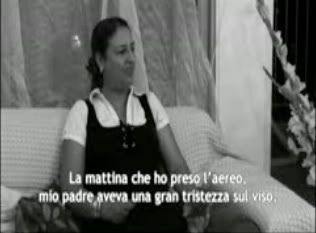by LibrInTerra
Here we publish an interview with Farian Sabahi, an Italian-Iranian professor at Sapienza University of Rome and the University of Turin. A professional journalist, Sabahi has been writing for Corriere della Sera for several months. She was a guest of LibrInTerra on the 26th of March, presenting her two books Storia dell'Iran [A History of Iran] and Un'estate a Teheran [A Summer in Tehran] and showing her two documentary films "Out of Place" and "Che ne facciamo di Teheran?" [What Should We Do with Tehran?]. These days, Iran is again under the spotlight, especially due to its difficult relation with Israel, so this interview should be of greater interest to the public, given its timeliness.
Q: In recent months, Iran has been harshly criticized and continually commented on by the media, especially with regard to its nuclear program and difficult relation with the United States. Does Iran need to produce energy through nuclear power or is the fear about its nuclear program justified?
A: The biggest problem is the lack of trust in Iran on the part of the international community. That said, Iran's electricity demand amounts to 40,000 megawatts, so it would need forty nuclear power plants like Bushehr.
Q: To what extent can Obama's video message create a new channel of dialogue with Iran, especially in view of the upcoming elections, which will take place on the 12th of June? What will happen, politically, in Iran?
A: It's difficult to make a prediction ahead of the presidential elections on 12 June, especially since the predictions of analysts have regularly turned out to be mistaken. But I wouldn't directly link the Obama video to the elections because foreign policy is, like the nuclear program, the exclusive prerogative of the Supreme Leader, Ali Khamenei, not of the President of the Islamic Republic.
Q: The difficult relation between Iran and Israel is dealt with in your report "Che ne facciamo di Teheran?" But the Jewish presence in Iran is proportionally the largest in the Middle East outside Israel. What is the real relationship between the Jewish minority and the other Iranians?
A: The Jews living in Iran numbered 80,000 at the time of the creation of Israel in 1948, and now the number is estimated to be 25,000. They have a deputy in the parliament, and they are a recognized minority who have their own schools, hospitals, and nursing homes. There are families who have for generations -- we might say for millennia -- been living in Iran. Iranian Jews are considered to be Iranians first and of the Jewish faith second. And as Iranians they enjoy civil, political, and religious rights and thus have their synagogues and cemeteries.
Click here to watch an excerpt from the film "Out of Place." |
A: According to a study by the Center for Iranian Studies in Tel Aviv, the Iranian Jews living in Israel would number 250,000. Some hold positions of prestige, even in politics and the armed forces, while others are simply merchants. Among them is Rachel, the protagonist of my short film "Out of Place," in which I deliberately left international politics in the background to foreground the issue of motherhood. And I believe that from the video it clearly comes across that Iran is, for Rachel, a metaphor for her own now faded youth. In any case on my Web site www.fariansabahi.com, you can find, in the "Journalism" section, my article "Essere e non essere israeliani" [To Be and Not To Be Israeli], published in Ventiquattro, the monthly supplement of Il Sole 24 Ore.
Q: You wrote that the color of Iran is black, the black color of women's chador. Iranian women play different roles in Iranian society, but since the elections of 2005 what has changed regarding the female part of society? Has the situation worsened in terms of personal freedom, for women?
A: Since the 2005 elections, a campaign against the bad-hejabi, the so-called "ill veiled," has been put into effect. But at the same time the One Million Signatures campaign was launched to repeal those rules within the legal system of the Islamic Republic that penalize women.
The original interview "Intervista a Farian Sabahi" was published by LibrInTerra on 21 April 2009. Translation by Yoshie Furuhashi.



